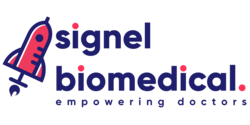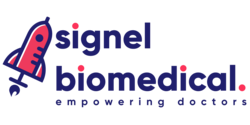1. The Importance of High-Quality ECGs
High-quality ECGs are essential for accurate cardiac diagnosis. They provide detailed information about the heart's electrical signals, enabling healthcare professionals to detect abnormalities, irregularities, and potential cardiac conditions.
Whether it's a routine check-up or a comprehensive assessment of a patient's heart health, high-quality ECGs serve as a fundamental tool for physicians and specialists.
2. The Role of ECGs in Cardiac Diagnosis
a) Cardiac Diagnosis and Assessment
ECGs help in diagnosing a wide range of cardiac conditions, including arrhythmias, ischemic heart disease, heart attacks, heart valve disorders, and congenital heart defects. By examining the electrical patterns and rhythm of the heart, healthcare professionals can pinpoint irregularities, identify potential issues, and develop appropriate treatment plans.
b) Monitoring Cardiac Health
In addition to diagnosing cardiac conditions, ECGs are used for continuous monitoring of patients with known heart problems. They help assess the effectiveness of prescribed medications, evaluate the progress of treatments, and detect any changes or abnormalities in the heart's electrical activity.
3. The Significance of ECG Accuracy and Reliability
ECG accuracy and reliability are paramount in ensuring effective cardiac diagnosis and assessment. High-quality ECGs offer clear, precise recordings of the heart's electrical signals, reducing the chances of misinterpretation or false readings.
Accurate ECG interpretations enable healthcare professionals to make informed decisions, provide appropriate treatment plans, and ensure patient safety.
4. The Role of ECG Interpretation in Cardiology Diagnostics
ECG interpretation requires specialized knowledge and expertise. Cardiologists and healthcare professionals trained in ECG analysis can analyze the recordings to identify abnormal heart rhythms, ischemic changes, conduction delays, and other cardiac abnormalities.
Their interpretations help guide the diagnosis, treatment, and management of various cardiac conditions.
5. ECG Technology Advancements
Advancements in ECG technology have significantly improved the accuracy, reliability, and convenience of cardiac diagnostics. Modern ECG devices offer features such as wireless connectivity, compact designs, and enhanced signal processing algorithms, resulting in higher-quality recordings and more precise interpretations.
These technological advancements contribute to improved patient care and better outcomes in cardiac diagnosis and treatment.
6. Adherence to ECG Quality Standards
To ensure consistent and reliable results, ECGs must adhere to established quality standards. These standards encompass electrode placement, signal acquisition techniques, calibration, and standardized reporting formats.
By following these guidelines, healthcare providers can maintain the integrity and accuracy of ECG recordings, facilitating effective communication among healthcare professionals and optimizing patient care.
High-quality ECGs play a vital role in cardiac diagnosis, assessment, and monitoring. They provide accurate and reliable information about the heart's electrical activity, aiding in the detection and management of various cardiac conditions.
By understanding the significance of high-quality ECGs, healthcare professionals can make informed decisions, deliver targeted treatments, and improve patient outcomes. Continuous advancements in ECG technology and adherence to quality standards further enhance the effectiveness of ECGs in cardiac diagnostics, ensuring accurate interpretations and precise diagnoses.
Ultimately, high-quality ECGs are essential tools in the pursuit of optimal cardiac health and well-being.














